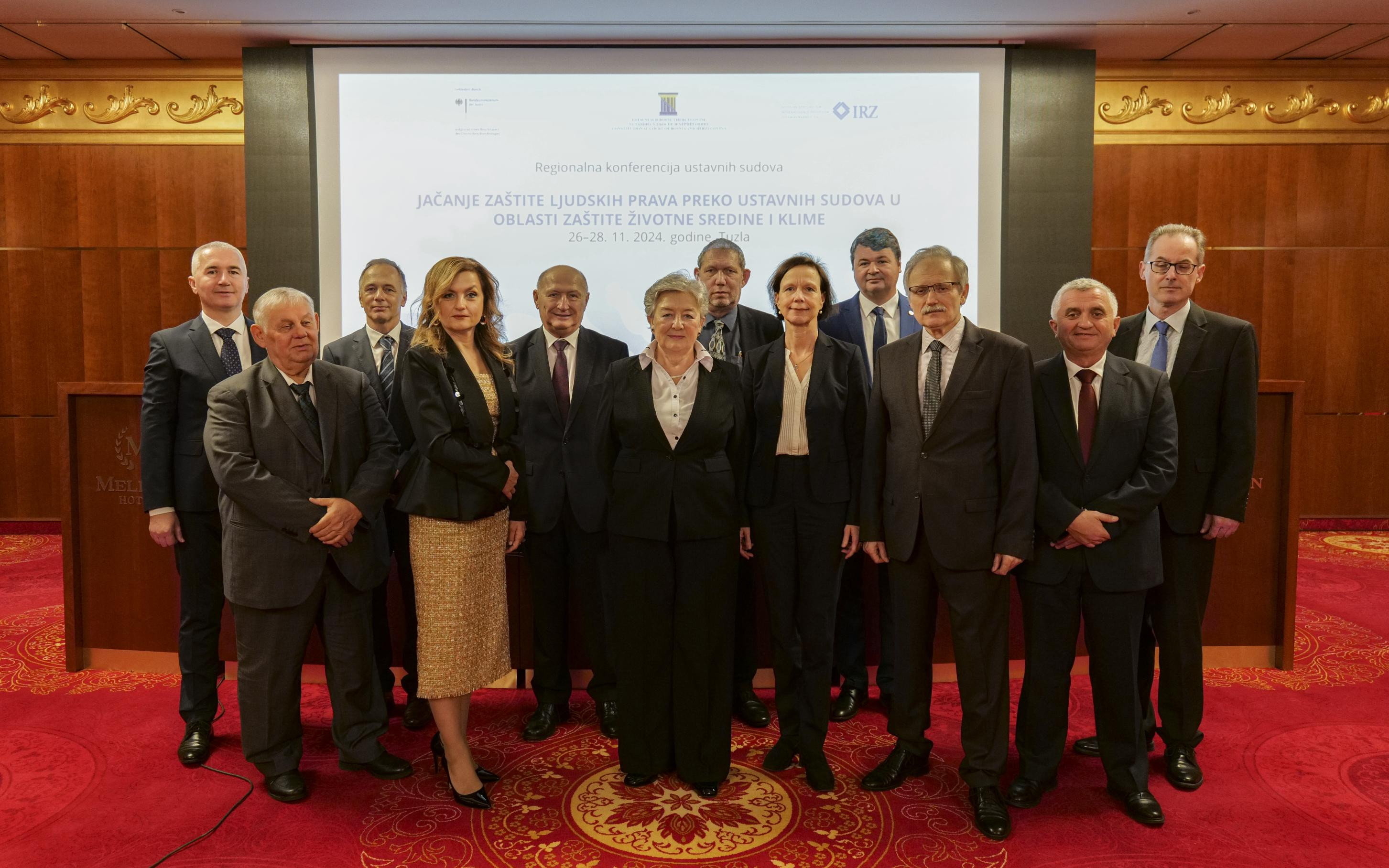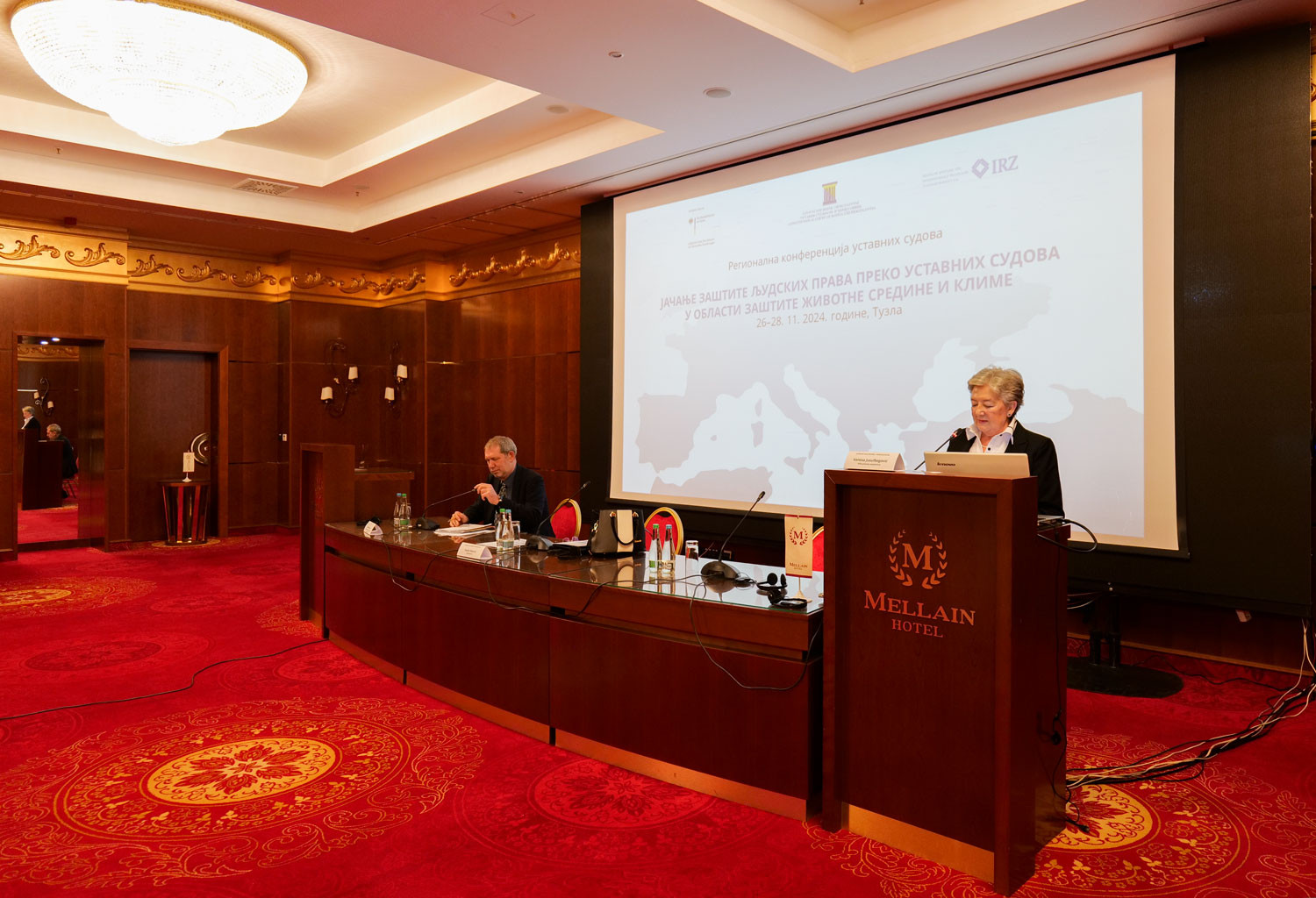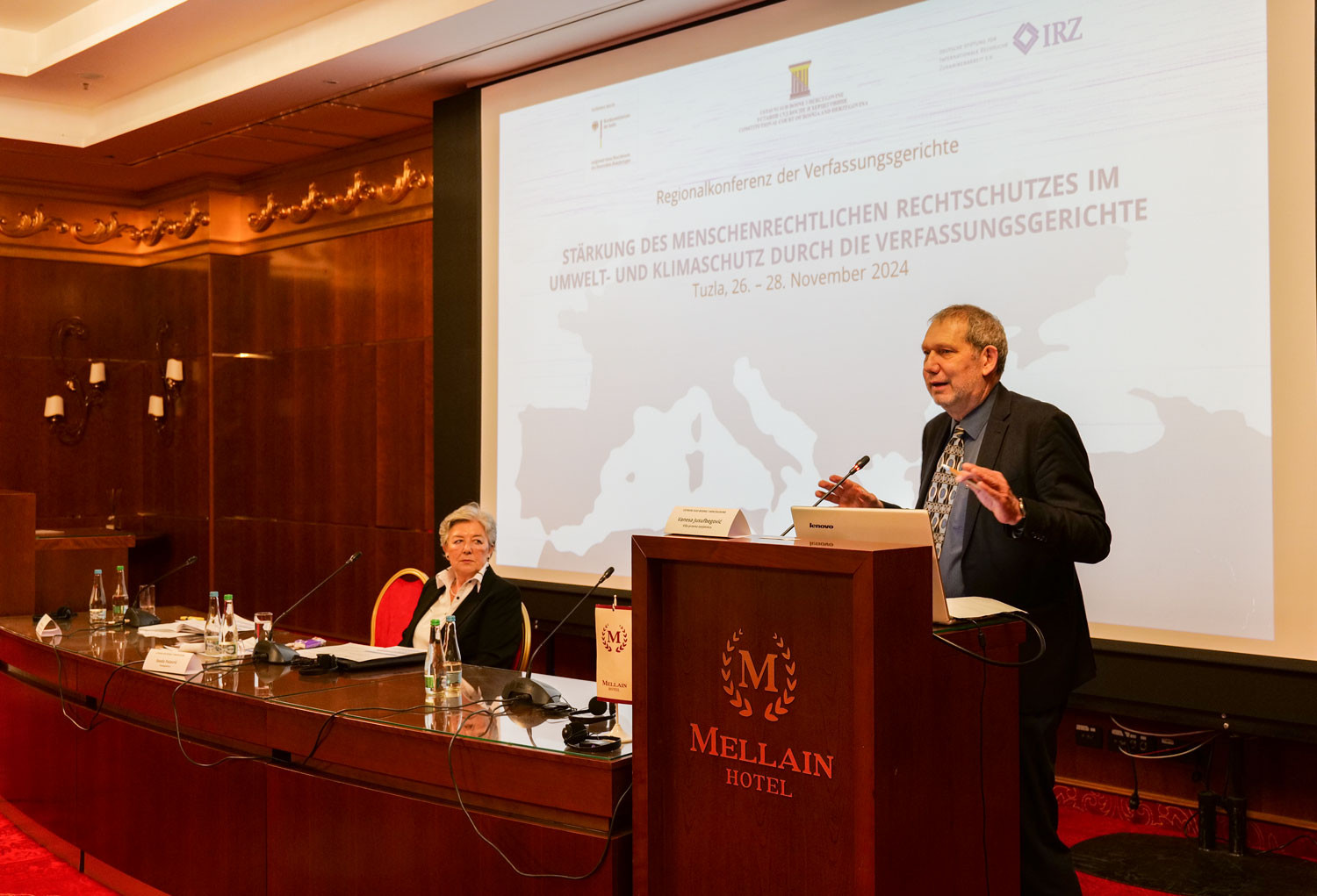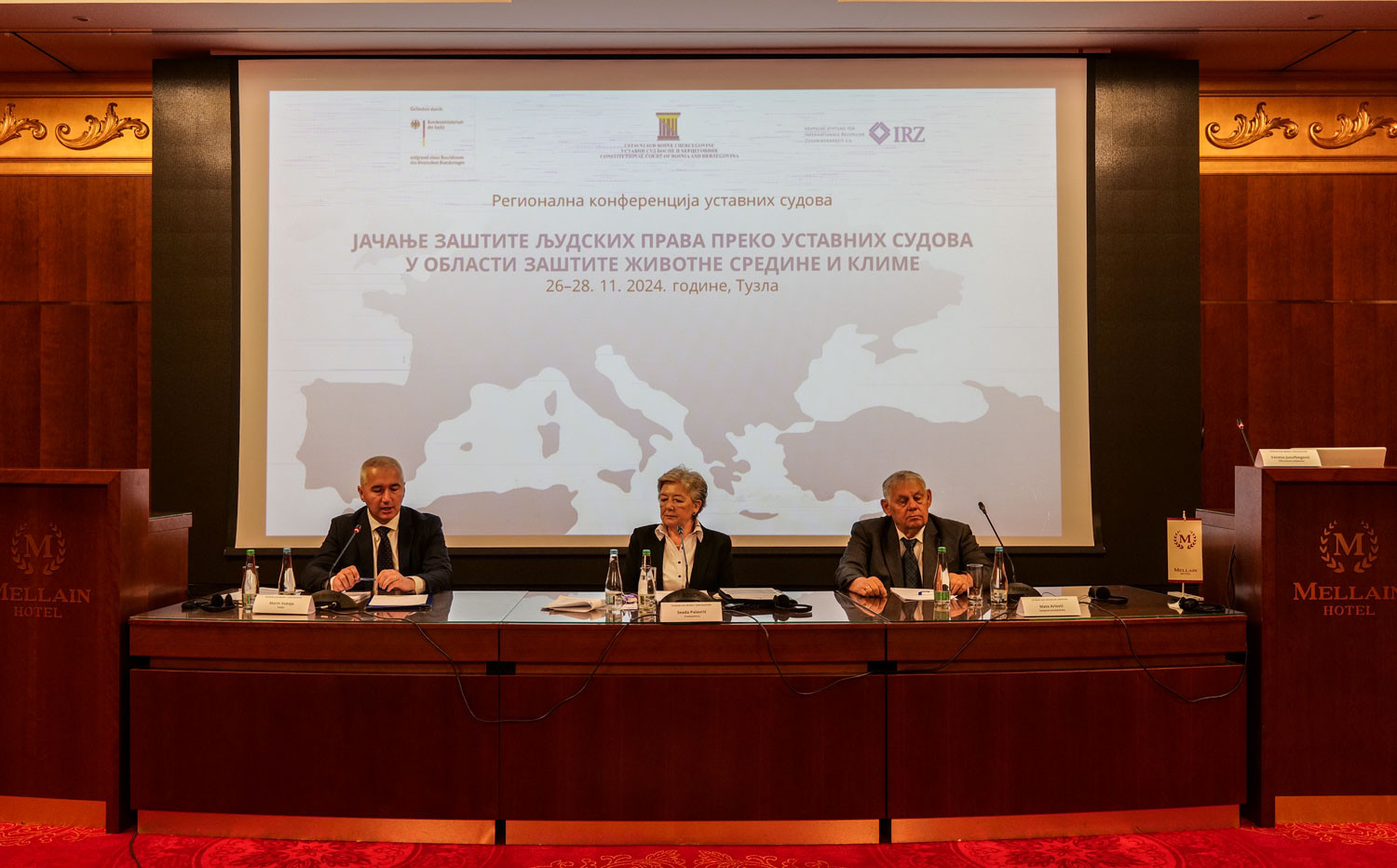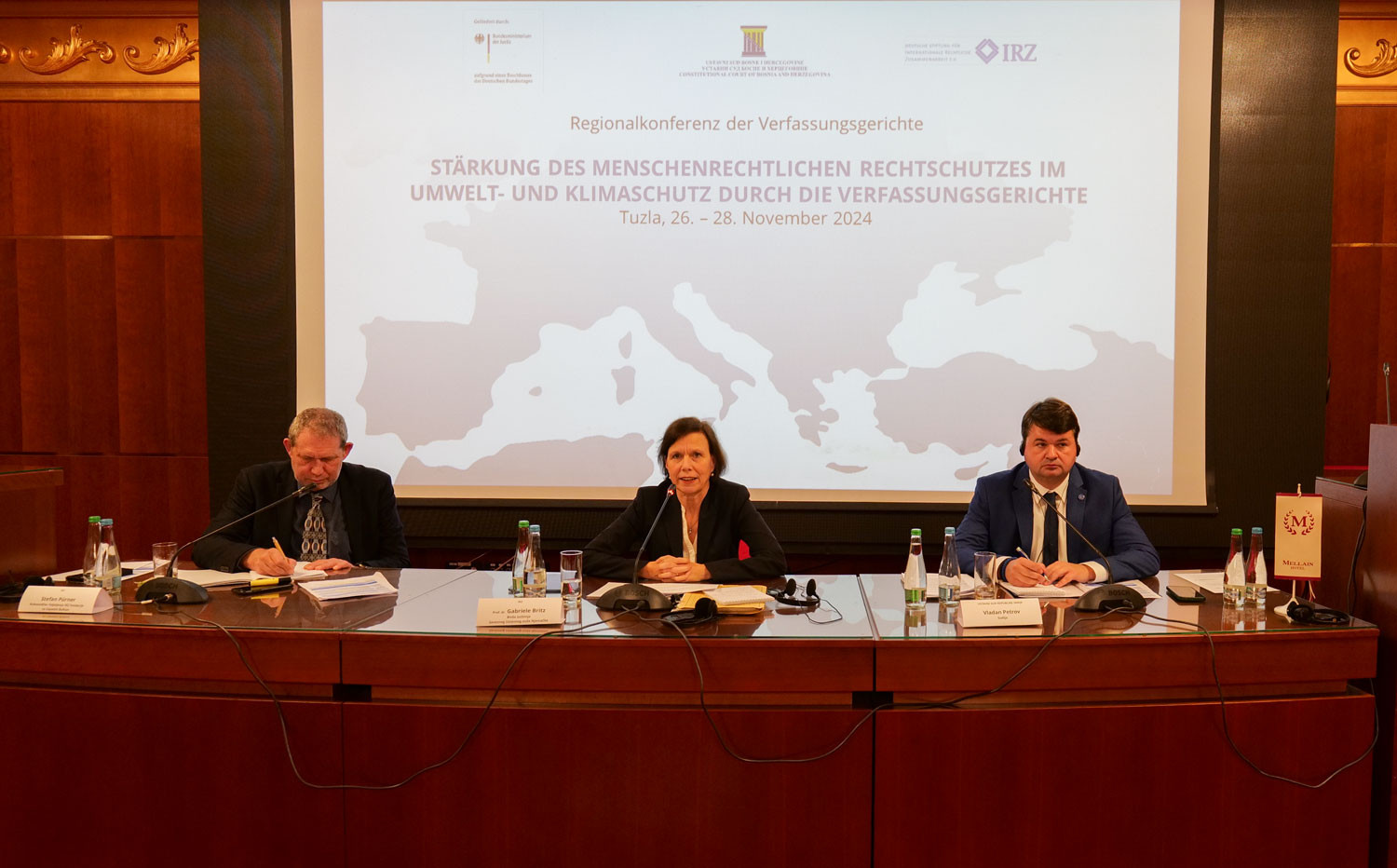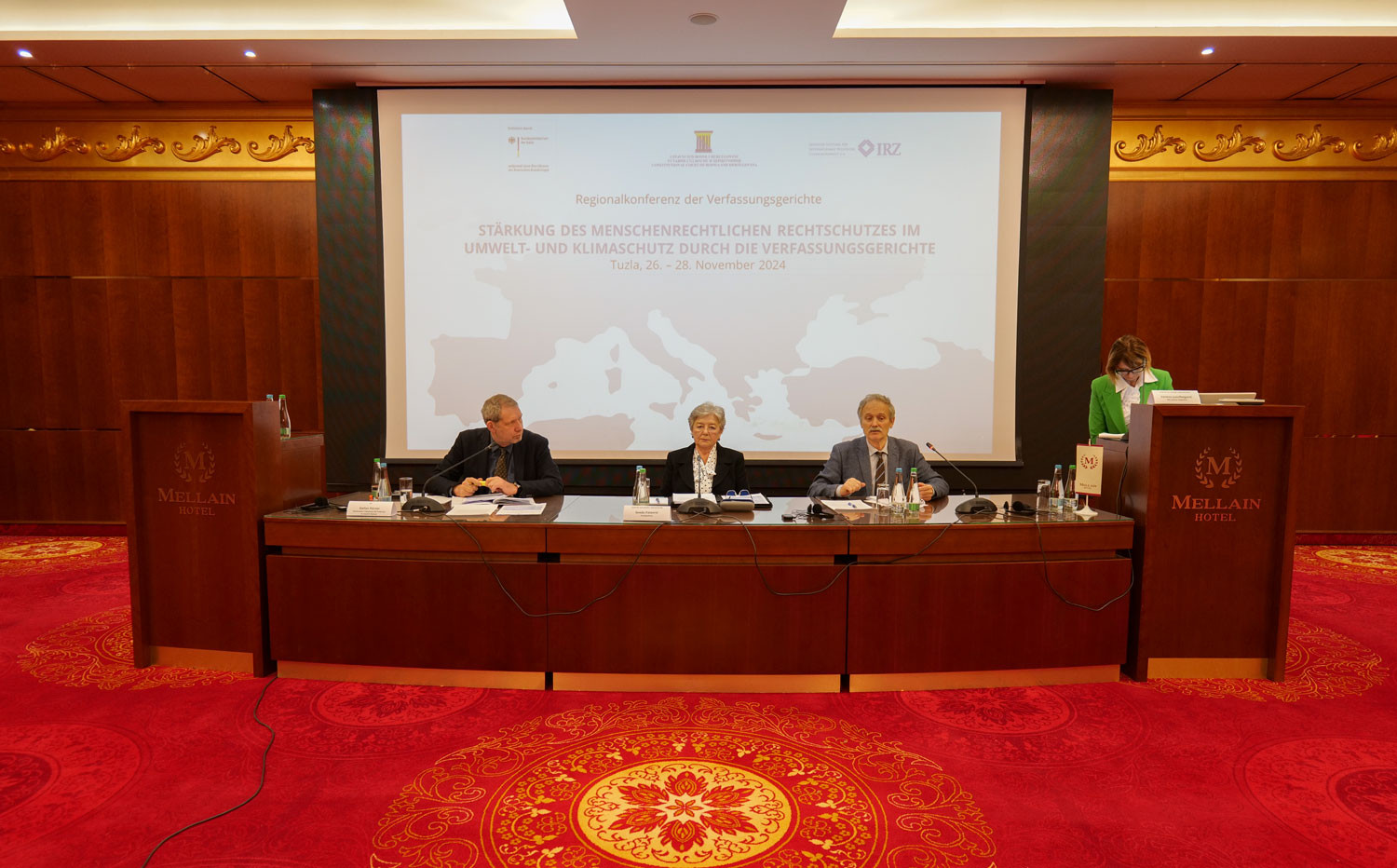A regional conference of constitutional courts on the topic of "Strengthening the protection of human rights in the field of protection of environment and climate through the constitutional courts", organised by the German Foundation for International Legal Cooperation (IRZ) in cooperation with the Constitutional Court of Bosnia and Herzegovina, was held in Tuzla in the 26-28 November 2024 period. The conference was attended by presidents and judges of the constitutional courts of the Republic of Slovenia, the Republic of Croatia, the Republic of Serbia, the Republic of Northern Macedonia and Bosnia and Herzegovina, Prof. Gabriele Britz (former judge of the Federal Constitutional Court of Germany) and representatives and legal experts of the IRZ. The goal of the conference was to exchange experiences and best practices among the courts on the subject of citizen rights to a healthy environment as well as challenges in the interpretation and implementation of environmental norms at the national level.
The importance of constitutional courts in the interpretation and preservation of environmental rights as well as legal mechanisms for the environmental protection were discussed at the conference. Special consideration was given to the role of courts in the interpretation and application of laws pertaining to protection of natural resources, reduction of emission of pollutants, preservation of biodiversity and reduction of climate changes. The participants emphasised that environmental protection is not only a legal obligation but also a fundamental human right that must be protected at all levels of acquis bearing in mind delayed effects of pollution. By acting now, we protect this generation as well as the generations to come. In addition, constitutional courts, as well as ordinary courts, are taking a proactive role and must act pro futuro. One should always keep in mind that a specific polluter has an obligation to compensate damage provided that such an obligation is stipulated by national law; otherwise, the State has that obligation. In this connection, the entities that comply with environmental legislation cannot be required to compensate damage.
In addition, specific case law of constitutional courts was exchanged and specific cases dealing with environmental protection (including decisions on urbanisation, industrial pollution and renewable energy) were commented on. Special emphasis was placed on decisions facilitating sustainable development.
The conclusions of the conference can be found in the text below:
Conclusions of the Conference
• Operation of constitutional courts for the future: Everything changes with the imperative of environmental protection and our obligation nowadays is to work and think for the future through the operation of constitutional courts. Constitutions should not only be interpreted and implemented in order to overcome the past, but also in the manner so as to enable a safer future.
• Increased role of the courts in environmental protection: Constitutional courts should recognize their responsibility in the application of environmental laws and standards, and play a key role in the implementation of the environmental protection legislation.
• The role of courts in the implementation of a sustainable development: The constitutional and the ordinary courts must have a key role in balancing the needs for a sustainable development and for the protection of environment. In that manner they shall contribute to the achieving of the goals of sustainable development, especially in the context of decision-making that takes into account long-term environmental consequences. Answers from the courts will be sought more and more, especially in proceedings for compensation for the damage caused by violation of the right to environmental protection. When finding a polluter responsible, courts must recognize the polluter instead of obligating by their decisions entities that comply with environmental regulations to compensate for environmental damage jointly and severally.
It must be borne in mind that there exist two principles of environmental protection established so far. One is through Article 8 of the European Convention when environment is protected through that right and the other, more modern approach, the application of which should be ever more encouraged, is when the environment is protected for its own sake. In accordance with it, the right to protection is granted to environmental organizations. The process of determining the protection is a matter of national legislation, but an effective protection is in the hands of the courts.
• The right to a healthy environment as a human right: Additional efforts should be made in terms of promoting the right to a healthy environment as a human right. The right to environmental protection must not be a declaratory right. It needs to be defined through the constitutional case law.
• Stronger integration of environmental principles in constitutional interpretations: It is necessary to secure and promote a stronger integration of environmental principles in constitutional interpretations, and enable further development of legal mechanisms that enable an efficient protection of natural resources and public health.
• Action on national level: Differences in approach by respective constitutional courts undoubtedly exist. However, work on environmental protection begins on a national level, and climate protection is a global issue.
• Efficient implementation of legislation: While significant legal norms and regulations do exist, the key challenge is their efficient implementation.
• Raising awareness of environmental justice: It is extremely important to educate the citizens and raise their awareness of their right to environmental protection. Understanding environmental challenges and their legal aspects is key to a responsible judicial decision-making. On the other hand, decisions of constitutional courts should be educational and have an effect on the development of the awareness of environmental protection.
• Legal means for environmental protection: The issue of access to justice, especially with respect to the environmental rights protection, becomes a key element for an efficient implementation of environmental laws.

